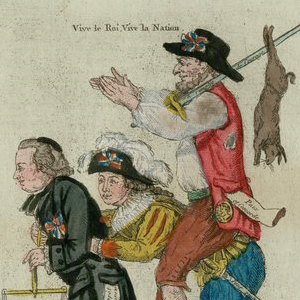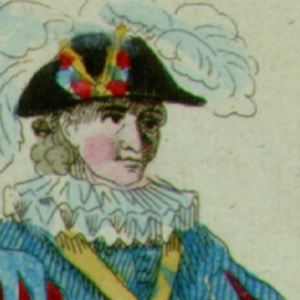Culture

Oath of the New Horaces
Social discrimination against old regime elites continued in this parody of a famous painting prior to the French Revolution, The Oath of the Horatii, by Jacques–Louis David which focused on the courage of three brothers who thrust their arms bravely forward to signal their willingness t
Beauty and Darkness: Cambodia
In order to comprehend these overwhelming atrocities on a personal level, I strongly recommend the chilling oral histories...The accounts would make excellent supplementary reading for a class discussion on the Khmer Rogue and provide a hauntingly human face to the statistics.
I Was Sure We Would Have Our Turn
Class solidarity was never universal, as this print celebrates the victory of the peasantry over the nobility and clergy.

Awakening of the Third Estate
With the Bastille being destroyed in the background, a member of the Third Estate breaks his shackles. Here, the clergy and nobility recoil in fear, thereby emphasizing the conflict between the estates during the French Revolution.

Reunion
This piece of crockery further demonstrates the sentiments of social unity so prevalent at the 1790 Festival of Federation celebrating the French Revolution. The crossed sword, pike, clerical staff, and bonnet symbolize the union of the nobility, peasants, clergy, and workers, respectively.

Through Me You Are All Brothers
Reflecting the sentiments of the French Revolution, this image shows the three orders unified by religion. The Virgin standing at right in a cloud holds a cross from which rays emanate to three figures representing the clergy, nobility, and Third Estate.

General Federation of the French
This image provides a visual overview of the Festival of Federation of 14 July 1790.
Source Collection: Social Causes of the French Revolution
Instead of bringing unity and a quick, political resolution to the questions of 1789, as intended by its originators, the Revolution was producing further conflicts. What had happened? Had the revolutionaries expected too much?

The Joyous Accord
This allegorical image represents the sentiments of social unity that the National Assembly sought to promote through the Festival of the Federation of 14 July 1790 during the French Revolution.